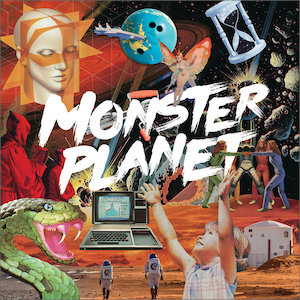RH :: If I were to perform this album live — which I decided against — it would imply that I turn it into something that is playable, define an instrument that somehow works with material from the album as a source. I could do this, but it would turn into something else as a result. The more I would turn it into something I can perform, the more the question would be: why not spend the time to do something completely new instead? One reason why I’m so happy with Studio is because I understood that it’s not my role anymore to reinvent the field. I want to go deeper within the things that I like and I leave the completely eruptive, disruptive new things to other people. Because something else I found really beautiful is occasionally some of these 20-plus year old people who are doing stuff that I find amazing, telling me that they are amazed by my stuff just because it’s different from what they’re doing. Instead of running after them and trying to do what they do and fail, of course, I don’t need to record my own cut-up vocals.
Yeah, exactly! But I can absolutely enjoy it if they’re doing it. One of the things I think about a lot is how to keep my brain as sharp as possible as I get older. So I try to keep things fresh though like you, I still listen to all the stuff I listened to when I was 15. I will listen to Computer World and Remain in Light in their entirety at least once a week, if not two or three times in a day. And there’s often something I will hear I’ve never heard before, even though I’ve worn out every copy of “Pocket Calculator.” But listening to newer stuff is key as well. A few years ago I just stopped making music for a while and listened to new music for a couple of months. And it was astounding the stuff I found, just like whole new genres or bands like Overmono, Joy Orbison and Forest Drive West. It’s very dance-oriented stuff that I normally might pooh-pooh but instead I’m like, Oh, my God, these people are doing amazing stuff.
RH :: Or like jungle now. There’s so much cool stuff going on there.
Yes! I remember my friend giving me a tape of jungle back in ’94. He’d just came back from England and was like “This is fucking amazing!” And it only took me, honest to God, almost 30 years to figure out how to make jungle but discovering the old stuff again and how it’s very new and just totally fresh.
RH :: It should happen, yeah.
Yes! Now I remember one of your early interviews in The Wire you talked about using “minimal structures” in creating your music. And somehow it was presented as if Minimal Structures was a program that you and Gerhardt had written. And I emailed you to find out what this mysterious Minimal Structures program was!
RH :: (LAUGHS) Actually, I remember that. I just said, No, the structure is simple. Yeah, that’s funny. I remember that.
(LAUGHS) And then it was like a scene from a movie: me walking down an alley in the rain going, “Okay, I guess I’ll just go make my own minimal structures.“ But it actually sent me on a path of starting to listen to your music and others, not necessarily to discover what gear they were using but how and which elements were used in a song. To that end, having been doing this for over 30 years since your first release, is there anything you miss about that time? And maybe even in creation, your studio is there something that you don’t have now, or is it all just the technology has made everything better and never looking back?
RH :: No. What I found hard to come back to is this mindset of a reduced setup. Because if you use, let’s say, an MPC or any of these things like the early hip hop producers, and you just have your five samples, it makes a difference. You force yourself to reduce. I sometimes miss that I’m simply forced to think like that. But this is maybe also a bit nostalgic because on the other side, I also enjoy the fact that I can operate with this abundance. I guess what I wanted to achieve with the album and where I believe I mostly succeeded is that I wanted to do something that is not overly complex, not complexity for the sake of complexity, not like, “Okay, I have this effect, and I have that effect, and now I do this.” And I do something that is relatively straightforward in many aspects, But then you listen carefully and you find all this minute detail. In a way, what I admire in nature, and I’m jumping a bit, but I come back to the equipment question.
What is fascinating when you are in a forest is it’s basically trees, but every tree is slightly different. Or if you watch the ocean forever, like waves coming in and there’s this steady rhythm of the waves, but still every single wave is a bit different. You always think, “Oh, my God, the next one is really big, and then the next one is shallow again, and then, Oh, this is big, and then it becomes big.” You have this interesting thing of teasing and reward. In music, I see patterns. You have the repetition, and the repetition is pleasing because you know what to get. And then there’s this element in it where you think, “Oh, what was this now? This is nice. Yes.” And playing with that is for me a big part of making music, finding the right pace in time. And I believe I believe one of the bigger achievements of this album is that I found a good pace. So the amount of change is nice, and the length of the pieces, and the breaks are in the right place.
It never feels like something comes too early or too late. And this is something that completely transcends equipment. Because this is nothing another synthesizer can solve. And this is also nothing if the sound quality is shit. It is really something completely different. It has to do with what is the narrative? What is the pace of your composition? I had this pace at the beginning, also due to the fact that the way I worked with Gerhard as a team in this jamming session had a pace that was also defined by physical interaction. What happened in the ’80s or in the ’90s when people were making electronic music most of the time, you couldn’t just program everything. A lot of the music came from, “I do this I mute on the mixer, I raise this fader, I go over here to the effect, I go back to the mixer.” There was this hidden dance in the studio.
Yeah, you were the automation not the SSL desk. Yeah.
RH :: There was a human body in motion involved. Then comes the time where you do all that in a box and the motion is reduced to mouse clicks. I believe this has an impact on the overall experience of rhythm in the music.
Absolutely! What’s different about making music now 30 years after your first release? Is it just a question of technology or something else?
RH :: I know a lot more about music in general and my tools. I lost a lot of innocent exploration but I gained much more skills to go deeper into things. For instance I am very pleased with how mixing this album worked out. I never felt more in control of the overall sound and I never had more fun adjusting details in a meaningful way and noticing the difference this makes. This feeling of knowing what to do is very empowering. But more globally the main difference is that thirty years ago everyone tried to make something with very limited resources and how we are all fighting with finding our artistic self in this flood of tools and toys. (With regards to Studio) I somehow felt that with this album, I managed to get a bit of this physical movement groove back in the music.
Yes, it reminded me of — I lost it ages ago — a favorite MP3 of you live in Australia from Triple J.
RH :: Yeah. I know this one. It’s a good one.
Yes! It’s so loud and it’s harsh, not in a digital way but you’re clearly pushing it, the listener can feel you physically moving it. For one who hasn’t been there I imagine a live gig in a bunker, you sweating away in the depths of Berghain while performing.
RH :: But it was that type of thing. For this recording, I was using my gigantic MIDI controller, the Monodeck. It was basically also very improvised. So it was exactly that. There was a human pace in it. It took all these years of trying and failing until I got in a situation where I can recreate this pace with the mouse.
It can be done. I don’t need to tell you this but ultimately, it doesn’t matter how the music was created, but if it moves the heart and has passion. I think that was how Brian Eno put it? Which comes through in what you’re doing. I’d say your production style is very spare and sparse. One could ignorantly call it cold and electronic, but I don’t think so. I think there’s an obviously organic process behind your music. This is something that’s easily overlooked in criticism of electronic music for as long as it’s been around. I’m a big fan of Autechre — a tad obsessive sometimes ù and listening to the live recordings they’ve been releasing recently leaves me floored, just like, “What is going on?!” (BOTH LAUGH) I mean I know they’re onstage working but it’s funny to think they arrive at a venue, plug in their laptops then just run a Max patch, get a curry then during the show they’re just playing Tetris between the two computers.
RH :: (LAUGHS) It’s really interesting because I saw their max patch once, and it’s a beautiful patch on the surface, but I have no idea what they’re doing.






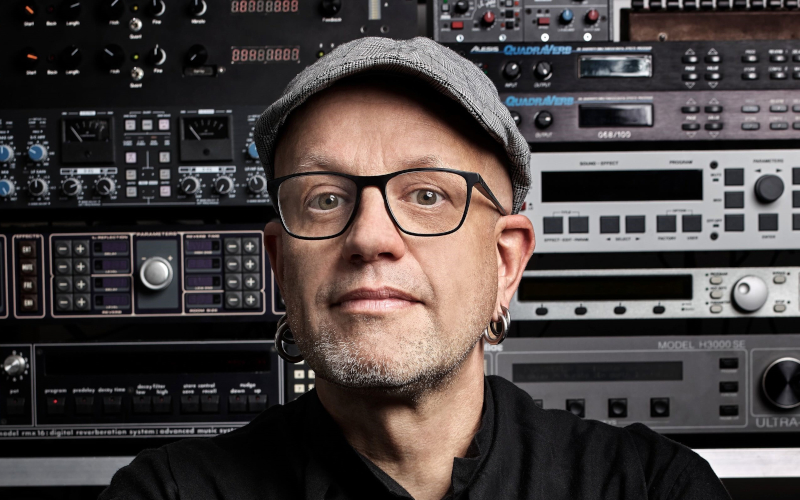
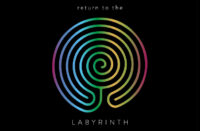


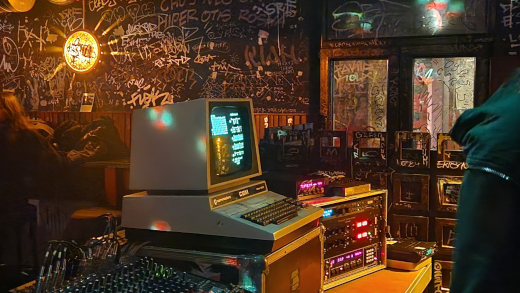

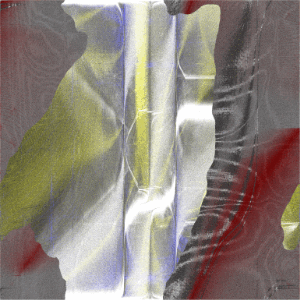

![Pole :: Tempus Remixes (Mute) — [concise]](https://igloomag.com/wp/wp-content/uploads/2025/04/pole-tempus-remixes_feat-75x75.jpg)






![Hasbeen :: Bunker Symphonies II (Clean Error) — [concise]](https://igloomag.com/wp/wp-content/uploads/2025/04/hasbeen-bunker-symphonies-ii_feat-75x75.jpg)
